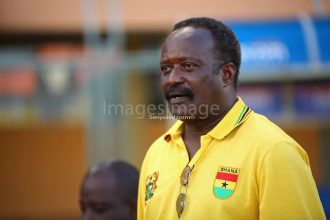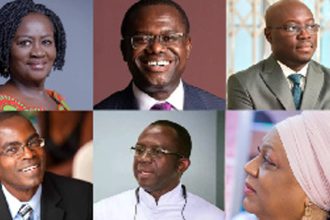The Economist Intelligence Unit (EIU) which has been forecasting economic trends, political forces and industry developments in every country since 1946, has once again predicted a victory for the opposition National Democratic Congress (NDC) in the 2024 general elections but claims that will not happen with ex-President John Dramani Mahama.
It cited “ongoing public dissatisfaction with the slow pace of improvements in governance—such as infrastructure development, job creation and easing of corruption—will trigger anti-incumbency factors and push the electorate to seek a change” by voting against the ruling New Patriotic Party (NPP).
In its latest report, the EIU which combines data analysis its forecasts to guide informed decisions by businesses and policymakers, declared that “the NDC therefore stands a reasonable chance of winning the 2024 elections” but does not see that happening with the candidacy of ex-President Mahama, except “with a fresh candidate”.
Mr. Mahama made a massive showing in the 2020 Presidential election, and his party’s rank and file wants him to lead them at the 2024 poll. They believe that the last election was rigged in favour of the NPP by the Electoral Commission (EC) led by Jean Mensah who through the help of the Supreme Court refused to speak to her conflicting numbers and percentages.
Besides, the incumbent NPP deployed heavily armed soldiers, police officers and party thugs to various polling stations firing gunshots leading to the death of about 10 people in Accra and Techiman. Scores were also left injured.
The Herald’s Intelligence is that an early parliamentary victory declared by the NDC sparked the shootings and intimidating tactics by the NPP-inclined state security apparatus to take back the lost seats from the NDC. Techiman South constituency result is in court, while efforts are being made by the NPP to take back Assin North won by NDC, through a judicial process.
The EIU report titled “Five year forecast : Ghana April 13th 2022” said “our baseline forecast is that ongoing public dissatisfaction with the slow pace of improvements in governance—such as infrastructure development, job creation and easing of corruption—will trigger anti-incumbency factors and push the electorate to seek a change.
“The next parliamentary and presidential elections are due in 2024. Under constitutionally mandated term limits, the incumbent president, Mr Akufo-Addo, cannot run for a third term. The former president, John Mahama, is reportedly considering running again, but we expect the opposition NDC to try to revitalise its prospects with a fresh candidate”, it said.
Interestingly, the EIU in March, last year, said the same thing that it expected the opposition NDC to win the 2024 presidential election saying it was expecting the party to file a fresh flagbearer to enhance the party’s chances.
“The next parliamentary and presidential elections are due in 2024. Under the constitutionally mandated term limits, Mr. Akufo-Addo cannot run for a third term. Mr. Mahama is reportedly considering whether to run again, but we expect the NDC to seek to revitalise its prospects with a fresh candidate. After two terms of NPP government, we expect the NDC to win the 2024 presidential election and to gain a small majority in parliament,” the EIU said in a recent report.
In last year’s report as with the latest one, the EIU acknowledged the difficulty the Akufo-Addo-led government might face in terms of implementing some of its policies that require parliamentary approval due to the balanced nature of the house.
“In the 2020 parliamentary election, the NPP and the NDC each won 137 seats, but in January the one independent member of parliament (MP) announced that he would co-operate with the NPP, giving it the 138 seats needed for an effective majority, the EIU stated in the previous report.
“With a razor-thin majority, the Akufo-Addo administration will require all of its MPs to vote with the party in order to push through signature policies, which is likely to necessitate deal-making to persuade MPs, which stands to obstruct immediate policy priorities, such as reducing a large fiscal overhang through expenditure cuts and tax rises”, it said last year
The current report has mentioned that “the ruling party, the New Patriotic Party, will seek to limit the fallout from the coronavirus pandemic. Dissatisfaction over high unemployment and perceived corruption will spur sporadic unrest, but political stability will prevail on the whole. Risks to the security outlook include potential spill-over attacks from Islamist extremists in the Sahel region.
“Alongside continued attempts to soften the blow of the pandemic, the government will prioritise strengthening agro-processing and food security (via promotion of import substitution) and supporting diversified export growth and foreign direct investment, in line with its long-term Ghana Beyond Aid development strategy.
“Economic recovery will continue in 2022, driven by strong oil, gold and agricultural output, followed by an easing of real GDP growth in 2023-24 as oil output stabilises and manganese output declines. In 2025-26 the economy will benefit from the expected coming on-stream of the Pecan oilfield, and from higher gold and cocoa output.
“The cedi will remain prone to periods of volatility, given its dependence on commodity prices and evolving trends in investor sentiment towards emerging markets. The currency will weaken to GH¢9.88: US$1 in 2026, from an average of GH¢5.80: US$1 in 2021.
“Ghana has a strong democracy and is politically stable by regional standards. These factors, alongside a growing middle class and nascent manufacturing sector, will help to establish the country as a regional hub for machinery-making and agricultural processing.
“Ghana would benefit from an IMF programme, given investor concerns about fiscal sustainability due to high debt, but the government will prioritise policy independence.
“In line with the latest exchange-rate data released by the Ghana Statistical Service (the national statistical agency), which show sharper than expected depreciation at the beginning of the year, EIU has revised its exchange-rate forecast for 2022.
“We now expect the cedi to weaken sharply in the first half of 2022, accelerating the depreciation of the currency against the US dollar on average, to GH¢7.35:US$1 in 2022 (previously forecast at GH¢6.55:US$1), reflecting Ghana’s structural import dependency.
“The spike in global oil prices in the wake of the Russian invasion of Ukraine has led us to revise up our oil price outlook sharply. We expect prices to remain elevated in the near term, further boosting Ghana’s fiscal, inflation and current-account forecasts.
“Given higher than previously expected government revenue from oil for the forecast period, we have reduced our fiscal deficit forecast for 2022—to 6.9% of GDP (from 7.2% of GDP previously)—and for 2023-26, to an average of 5.2% of GDP (from 5.4% of GDP). In line with rising oil, food and general commodity prices, alongside heightened logistical disruptions due to the Russia-Ukraine war, we have revised our inflation forecasts for Ghana for 2022.
“We now expect price growth to average 13.4% (up from 11.1% previously). We now forecast that the current-account deficit will average 2.4% of GDP in 2022 (down from a previous forecast of 2.8% of GDP), supported by stronger oil and gold exports; in 2023-26 we expect it to average 3.3% of GDP in 2023-26 (revised down from 3.4% of GDP).
“The month ahead March 23rd-25th—Meeting of the Monetary Policy Committee of the Bank of Ghana (BoG, the central bank): With inflationary pressures expected to be high, we expect the BoG to increase the benchmark policy rate to 15% in the first half of 2022 (following a 100‑basis-point rise in November 2021) to stem an increase in consumer prices.
“EIU expects Ghana’s underlying political stability to endure over the forecast period, despite a highly acrimonious party-political landscape. The fierce rivalry between the two major parties—the ruling New Patriotic Party (NPP) and the opposition National Democratic Congress (NDC)—will remain the core feature of the political scene. A razor-thin NPP-led working majority in parliament (with 138 out of 275 seats) implies that achieving consensus on contentious reforms, including planned tax rises, will prove tumultuous.
“In November 2021 the minority government rejected the proposed 2022 budget bill over the introduction of an electronic-transaction levy (e-levy); this was later reversed, and the 2022 budget bill was passed by an NPP-led majority, albeit without the e-levy clause. Similar issues with achieving consensus on major legislation will slow policymaking and test the government’s strength throughout the remainder of its term (until 2024). We expect a transfer of power to the NDC in the 2024 elections, driven by anti-incumbency factors and public dissatisfaction with the current government.
“However, irrespective of who retains power, we expect policy continuity in the medium term, with a focus on improving food security, industrialisation and economic diversification. The new government will face similar challenges to its predecessor, but overall political stability will prevail.
“Public discontent with the government stems from factors such as rising prices (stoked further by the Russia-Ukraine war), unfavourable public-sector working conditions, limited economic opportunities for young people—exacerbated in part by the socioeconomic fallout from the coronavirus—and perceptions of corruption.
“This will continue to fuel sporadic unrest, which will be mostly non-violent and concentrated in urban centres, in 2022-26. This is illustrated by a seven-week strike that was launched on January 10th 2022 by the University Teachers Association of Ghana, over dissatisfaction with the existing salary structure for lecturers.
“We expect the state[1]controlled security forces to remain able to contain anti-government demonstrations and do not expect overall stability to be compromised. The security situation remains stable, but potential hotspots exist. Outbreaks of violence are possible in Western Togoland, where secessionist groups have been pushing for independence since late 2020.
“However, incidents are isolated and unrest is not expected to spread into neighbouring regions. Security in the Sahel region has deteriorated and the reach of Islamist militant groups is spreading southwards across porous borders to coastal African states.
“The military is building several forward-operating bases, mainly in northern Ghana, to prevent terrorists from crossing over from Burkina Faso, where Islamist militant attacks are becoming increasingly common. The bases will help to secure Ghana’s border regions and offshore oil and gas resources.













